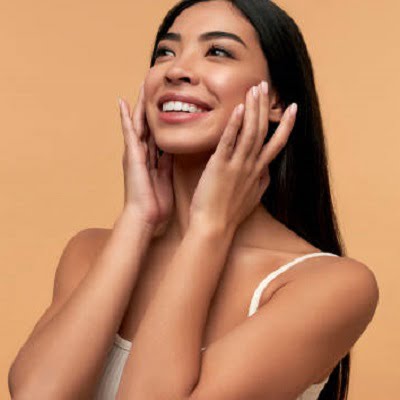
Many women worry that they may lose their hair as they age. People usually consider hair loss and thinning a worry. However, it may additionally diminish ladies’ confidence. Moreover, doctors can provide effective remedies and ways to prevent ladies from losing their hair. Therefore, understanding How the Aging Process Affects Hair Loss in Women can help them manage this situation.
How Does the Aging Process Affect Hair Loss in Women?
How the Aging Process Affects Hair Loss in Women depends on the following things:
Hormones Change:
Hormones significantly impact hair growth. Moreover, as women age, estrogen and progesterone levels diminish during and after menopause. Further, these hormones are crucial for hair growth and health. Therefore, dropping amounts can cause:
Low estrogen slows hair growth and thin strands.
Low progesterone levels can cause more hair follicles to reach the telogen phase and fall out.
Trait Inheritance:
Genes also influence hair loss risk and mechanism. Moreover, hereditary factors can cause androgenetic alopecia or female-pattern hair loss. Further, women with a familial history of hair loss are more prone to lose hair as they age.
Reduced Blood and Nutrients:
Women’s scalp blood flow declines with age, causing hair cells to receive less oxygen and nutrients. Therefore, this decrease weakens hair cells, preventing vigorous hair development.
Environmental Stressors:
UV radiation, pollutants, and harsh hair products can damage hair shafts and follicles, accelerating hair loss and thinning.
Medicines and Health Issues:
Thyroid, diabetes, and autoimmune illnesses can worsen hair loss in elderly women. Side effects from these medications may worsen hair loss.
Mental Stress:
Long-term stress damages hair. Retirement, losing loved ones, and health issues might make older women more worried. Moreover, stress can cause telogen effluvium. Therefore, many hair follicles enter the telogen phase too soon, causing visible hair loss.
Age-related Hair Loss Signs and Patterns:
- Women lose hair on the entire head, whereas men have receding hairlines and bald spots. Therefore, the head stands out when the hair loses volume, especially around the crown, and splits.
- A broader part line is one of the first indicators of aging hair loss. Low hair density allows the skin to show more along the portion.
- Some women have thinning temple hairlines. However, it is less common in women than men. In addition, This might highlight your forehead and alter your face.
- Ponytail-wearing women may discover their hair thins with time. Often, this indicates hair volume loss.
Removing Aging-Related Hair Loss in Women’s Topical Remedies:
- FDA-approved topical minoxidil promotes hair growth and prevents hair loss. Hair follicles are strengthened, and the anagen phase lasts longer.
- Dermatologists might prescribe topical medications with more active components or customized blended compositions.
- Women lose hair when androgens, which this medication suppresses, are present.
- Though males are the ones who usually use finasteride, some research indicates that it may benefit women who experience androgenetic alopecia during menopause. Premenopausal women should avoid it because of its possible side effects.
- Hormonal replacement therapy may assist menopausal women who are losing their hair and balance their progesterone and estrogen. This might promote more growth and density of hair.
- Good hair needs a diet high in vitamins and variety. Biotin, vitamin D, iron, and omega-3 fatty acids can promote hair growth and strength.
Look After Your Hair:
Gentle Haircare: To stop hair breakage, use moderate shampoos and conditioners, steer clear of heat style, and brush lightly.
Head massage: Frequent head massages improve blood flow to hair follicles, so encouraging better hair development.
Hair Loss Remedies:
PRP Therapy: During platelet-rich plasma (PRP) therapy, many of the patient’s platelets are injected into the scalp to encourage hair growth and follicle health.
Low-Level Laser Therapy (LLLT): Hair follicles are stimulated and develop painlessly by red light.
Lifestyle Adjustments: Exercise, meditation, and yoga—all stress-relieving activities—can maintain good hair.
Healthy Food: Vegetables, fruits, lean proteins, and whole grains support healthy hair development.
Final Thoughts:
Older women may lose or thin their hair due to hormonal changes, reduced blood supply, environmental stresses, and heredity. Being aware of its causes and signs might make finding solutions and preventing age-related hair loss easier.
SKN Cosmetics has board-certified and experienced specialists to solve all age-related hair loss issues. By consulting us, women may maintain their hair and confidence as they age by preventing hair loss and utilizing good hair care. Therefore, book your appointment now!



